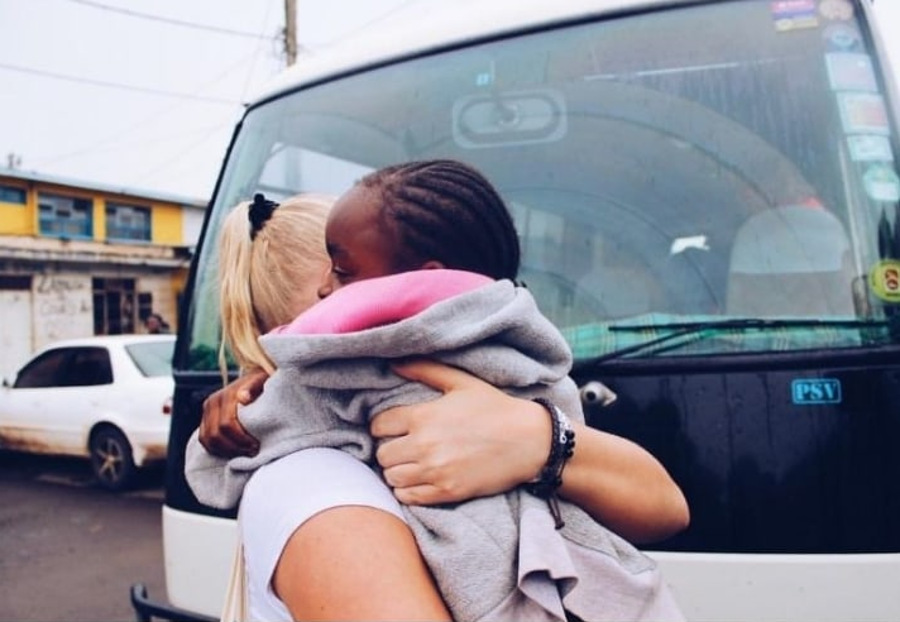NEW YORK (ViaNews) – Back in March, Instagram user Jossa Johansson (@jossajohansson) posted an image of herself with a child from Kibera, Kenya. Although the photo appeared innocent, Johansson became the center of unwanted attention when the social media community burst with an outcry in response to her caption.
Johansson wrote, “One of the happiest moment in your life was probably when you met me and my friends, and you asked me when I’m coming back. I am sorry to tell you that there is a very slim chance we will ever meet again.”
She continued, “In two years you are going to meet a grown man that you have never met before and you two are going to have a child … if you are lucky … he will probably leave you alone … in your small homemade of mud and trees. You will probably sell your body to someone else to earn money for your child.”

The Instagram post went viral with more than 37,000 retweets and 82,000 likes in less than a week. The incident sparked discourse around the uninformed results of voluntourism and the white savior complex.

In recent years, volunteer tourism has become the fastest growing trend in the tourism industry. According to a 2008 study which surveyed 300 organizations that market to would-be voluntourists more than 1.6 million volunteer tourists are spending about $2 billion each year.
Although the well-intentioned volunteers travel abroad with the goal to “save the world,” the underlying motives of both organizations and individuals often impede in the way of benevolent actions. With this, the question remains whether the act benefits the communities or the volunteers.
The popularity of volunteer tourism is problematic when considering the demographics of volunteers and their hosts’ organizations. A large number of which are culturally and technically unqualified and are not integrated into the communities enough to understand the root cause of problems in the communities. Voluntourists often come for a week or two for a “project” and depart once their time has come to an end, leaving those communities behind. Rather than establishing an infrastructure for sustainable autonomy, experts argue that voluntourism creates a dependency between host communities and Western societies.
As a result of the increased number of volunteer tourist, the Instagram account Barbie Savior has gained popularity with its 152,969 followers. Barbie Savior began as a joke in 2016 by two friends who drew from their own experiences of volunteering in East Africa and needed a space to express their frustrations with the White Savior Complex on social media. Their account is scattered with cheeky images of Barbie in Africa and witty captions to accompany every post. Between the two founders, they have decades of studying, traveling, and working abroad and are trying to shine a light on the people who over-sentimentalize the experience of visiting Africa.
In a 2016 TED talk, Madara Žgutė says, “we have to examine the consequences for the people we strive to help before we engage ourselves in the volunteer services because it often could turn out that we are only solving our own consciousness,” she goes on to say, “let’s be driven by our empathy and not our sympathy.”

